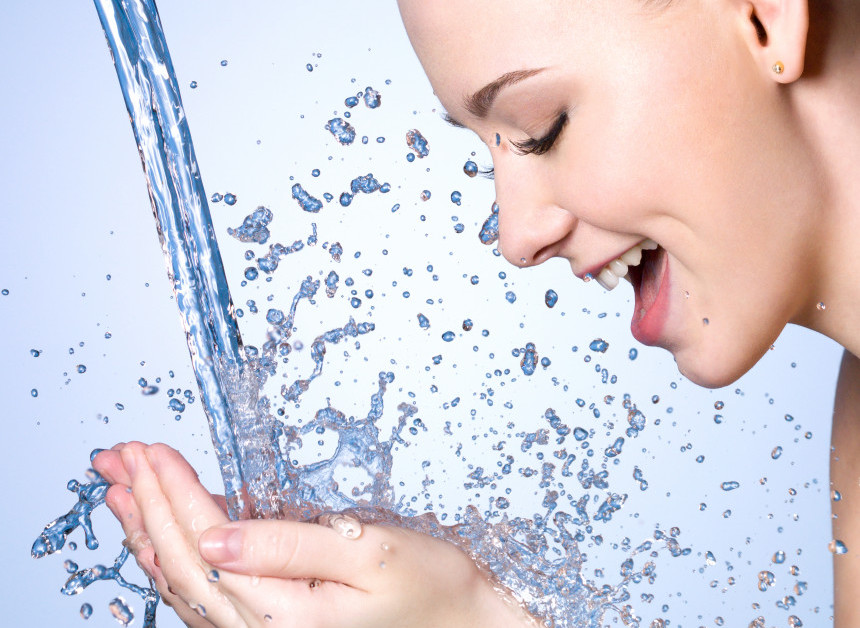
In today’s post, we aim to resolve one of the most common dilemmas many people have – hydration and moisturization of the skin. Regarding skincare, maintaining proper hydration and retaining moisture is crucial for healthy and glowing skin. In the following paragraphs, we will explore various aspects of hydration and provide helpful tips on properly moisturizing your skin. Without further delay, let’s uncover the secrets of hydration and moisturization of the skin! But hold onto your hats because we’re about to take a thrilling ride through the world of skin hydration and moisture. We will make the journey compelling and enjoyable, so let’s buckle up and get started.
In this post:
- The Importance of Hydration
- Fascinating Facts About Skin and Hydration
- Handy Tips and Tricks
- Why Hydration Matters?
- Why Moisture Matters?
- Understanding the Role of Moisturizers
- Choosing the Right Moisturizer
- Why Skin Hydration Matters to Men Too
- Interesting Things
- Tips and tricks
- Key Takeaways
You’ve probably heard “hydration is key” a thousand times before. But do you know why? Hydration can distinguish between dry, flaky skin and soft, supple skin. When your skin is properly hydrated, it can effectively serve as a barrier to pathogens and environmental toxins, keeping your body safe and healthy.
When your skin lacks water content, it looks dull and lifeless. It feels unattractive and becomes a magnet for wrinkles and fine lines. Hydrated skin has a youthful bounce and glow that can’t be replicated by expensive beauty products.
It’s not just about aesthetics, though. Dehydrated skin can lead to several skin conditions, such as eczema and psoriasis. A study published in the Journal of the European Academy of Dermatology and Venereology found a significant relationship between low water intake and the prevalence of these skin conditions.
Fascinating Facts About Skin and Hydration
Given the importance of hydration, it’s surprising that the skin is the last organ to receive water from our body. Our vital organs, such as the heart and brain, get first dibs, which makes sense. We can only precisely function with those. But our skin can become dehydrated if we’re not drinking enough water.
Did you know that the top layer of our skin, the epidermis, comprises about 30% water? And it’s this water content that provides elasticity and resilience to our skin. Sadly, this percentage decreases with age, leading to the appearance of fine lines and wrinkles.
Another intriguing fact is that our skin loses significant water while we sleep. While the exact amount varies from person to person, the National Sleep Foundation states that we lose a liter of water overnight through sweat and respiration.
Here are some simple and effective ways to keep your skin hydrated:
- Drink Plenty of Water: The most basic and essential step in keeping your skin hydrated is to drink sufficient water. The National Academies of Sciences, Engineering, and Medicine recommends a daily intake of about 3.7 liters for men and 2.7 liters for women.
- Eat Water-Rich Foods: Consuming water-rich fruits and vegetables, such as watermelon and cucumbers, can assist in maintaining skin hydration.
- Use a Humidifier: A humidifier can help maintain moisture levels in the skin, particularly in dry environments or cold weather.
- Avoid Hot Showers and Baths: Hot water can strip your skin of its natural oils, leading to dryness. Stick to warm or lukewarm water instead.
- Limit Alcohol and Caffeine Intake: Both alcohol and caffeine are diuretics that can lead to dehydration.
- Use a Hydrating Serum: A hydrating serum can deliver a high concentration of hydration to the skin, providing an extra boost of moisture.
- Set Reminders: It’s easy to forget to drink enough water in our busy lives. Set reminders on your phone or use apps that can help you keep track of your daily water intake.
When achieving healthy and radiant skin, “hydration” and “moisture” are often used interchangeably. However, these terms have distinct meanings and play different roles in maintaining skin health. We will explore the difference between hydration and moisture and why understanding this difference is crucial for your skincare routine.
- Skin Barrier Function: Adequate hydration supports the skin’s natural barrier function, protecting it from environmental stressors and preventing moisture loss.
- Elasticity and Firmness: Well-hydrated skin appears plump and firm, reducing the appearance of fine lines and wrinkles.
- Radiance and Even Tone: Hydrated skin has a healthy glow and an even complexion due to improved cell turnover and circulation.
- Soothing Dryness: Moisture replenishes and soothes dry, rough, and flaky skin, restoring its smoothness and improving overall comfort.
- Protection: The moisture barrier formed by occlusives shields your skin from environmental aggressors, reducing the risk of moisture loss and damage.
- Enhanced Product Absorption: Well-moisturized skin allows better absorption of active ingredients in your skincare products, maximizing their effectiveness.
- Finding Balance: Both hydration and moisture are essential for healthy skin. Achieving the right balance ensures your skin stays hydrated, moisturized, and glowing.
 Understanding the Role of Moisturizers
Understanding the Role of Moisturizers
What are Moisturizers?
Moisturizers are products designed to hydrate the skin by reducing evaporation and promoting water retention. They form a protective barrier on the skin, locking in the existing moisture.
Moisture: Nurturing Your Skin’s Outer Layers
Moisture focuses on nourishing and replenishing the outermost layers of your skin, the stratum corneum. It is all about maintaining the balance of oils and lipids to keep your skin smooth, supple and prevent transepidermal water loss (TEWL). The key players in moisture are emollients (oils and butter) and occlusive (butter and waxes). They help keep your skin hydrated for longer by preventing water from evaporating.
Types of Moisturizers
Various types of moisturizers are available in the market, ranging from lotions and creams to gels and ointments. Each type suits different skin types and conditions, so choosing one that suits your needs is advisable.
Choosing the Right Moisturizer
Finding the right moisturizer can be a challenging task. You are choosing one that complements your skin type and addresses your skin concerns. For instance, a moisturizer with hyaluronic acid is suitable for dry skin, while an oil-free moisturizer is best for oily skin.
Caring for your skin is fundamental to maintaining your overall health and appearance. Similar to how we choose our diet based on our body’s unique requirements, we should select skin care products personalized to our skin type. When it comes to moisturizers, it’s not a one-size-fits-all scenario. The choice largely depends on your skin type and understanding that is the first step in picking the right moisturizer.
There are five skin types: normal, oily, dry, combination, and sensitive. Each type has its unique characteristics and needs specific care. For instance, dry skin craves hydration and can significantly benefit from moisturizers with hyaluronic acid, a natural substance that helps maintain skin moisture. On the other hand, oily skin produces excess sebum and needs a light, non-comedogenic moisturizer that doesn’t clog pores.
A moisturizer is essential because it helps prevent epidermal water loss, a primary cause of dry skin and aging. Moisturizers trap water in your skin, giving it a healthy, glowing appearance. Besides, many moisturizers come packed with beneficial ingredients such as antioxidants, SPF, and anti-aging substances that provide extra benefits.
Why Skin Hydration Matters to Men Too
It’s a misconception that only women should indulge in skin care routines. Men’s skin also suffers from dehydration and needs proper care and hydration. Just like women, men should also ensure they drink enough water and use a good quality moisturizer.
What are the benefits for men? Well, properly hydrated skin can help reduce the appearance of wrinkles, prevent breakouts, and give a healthy and youthful look.
Moisturizers come in various forms – creams, lotions, gels, serums, each suiting different skin types and needs. Creams and lotions are usually best for dry and normal skin types, as they are heavier and provide intense hydration. Gels and serums are lightweight and ideal for oily and combination skin, as they deliver hydration without leaving a greasy finish.
| Skin Type | Product type |
| Dry |
|
| Normal |
|
| Oily |
|
| Combination |
|
| Sensitive |
|
Another fun fact is that your skin type can change over time due to age, climate, hormones, and lifestyle changes. It means the moisturizer that worked for you in your 20s might not be the best fit in your 40s. Therefore, it’s essential to reevaluate your skin type and moisturizers periodically.
When it comes to applying moisturizer, timing is everything. The best time to apply moisturizer is after a shower or washing your face when your skin is damp. Doing this will help the moisturizer trap and seal in the moisture from the water on your skin.
Avoid moisturizers with harmful ingredients
When selecting a moisturizer, it’s about what it contains but also what it doesn’t. Steer clear of moisturizers with harmful ingredients such as fragrances, parabens, and sulfates. These substances can irritate the skin, leading to breakouts and other skin issues.
Patch Test
Conduct a patch test before incorporating a new moisturizer into your skincare routine. Apply a small amount on your wrist or inner elbow and wait 24 hours to see if any reaction occurs. This step is especially crucial for people with sensitive skin.
Hydration is crucial for our overall health and plays a significant role in maintaining the health and beauty of our skin. By incorporating good hydration habits into your daily routine, you can maintain the softness and suppleness of your skin and keep skin issues at bay.
So, the next time you think about skimping your water intake, remember how vital it is for your skin. Let’s pledge to stay hydrated and keep our skin glowing. After all, healthy skin is always in.
 Image by Freepik
Image by Freepik
1. National Academies of Sciences, Engineering, and Medicine
2. Journal of the European Academy of Dermatology and Venereology
